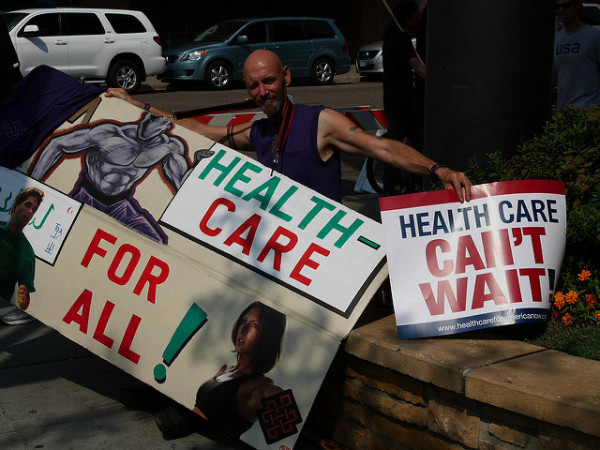Humans, whether they are rich or poor, male or female, religious or non-religious, are born with universal rights. Many people believe that one of these human rights is having access to basic healthcare. Basic healthcare includes having access to clean water, sanitation, child immunizations, skilled birth attendance, family planning, prenatal care, HIV and AIDS therapy. This belief has helped spread the idea of universal health coverage, meaning that all people should experience “the quality health services they need, without being exposed to financial hardship.” Universal health coverage has been named a key factor in reaching future sustainable development goals set by both the World Health Organization and the World Bank Group. There is also the belief that reaching for universal health care is helping decrease the inequalities in society, such as gender and wealth disparities.
Image Source: AsISeeIt
The World Health Organization and the World Bank recently released a report called Tracking Universal Health Coverage, which examined data from 37 nations over a ten-year span to track the progress to universal health coverage. According to the report, over 400 million people around the world do not have access to basic healthcare. Furthermore, 6% of people in low to middle income countries are pushed into poverty or further into extreme poverty in order to gain access to healthcare. People living on $1.25 or less a day are defined as living in poverty. When the poverty line is raised to two dollars a day, 17% of the population is considered to be living in poverty due to medical and healthcare expenses.
Ideally, people around the world should be able to have health services without paying an arm and leg. In order to reach the goal of universal health coverage, expanding access to healthcare as well as finding ways to protect impoverished humans from medical costs and health expenses are needed. More than 100 countries have taken steps towards this cause. The main goals suggested in order to provide universal health coverage include developing a sustainable, quality healthcare system, reduce out-of-pocket spending for patients, increase reliance on public funding, and prioritize the disadvantaged population. However, all countries are different and are taking their own approaches and creating their own reforms in order to maximize health coverage and public support for their individual country. Universal health coverage is definitely a reachable goal and progress is slowly being made to achieve it.
Feature Image Source: Ernesto De Quesada










